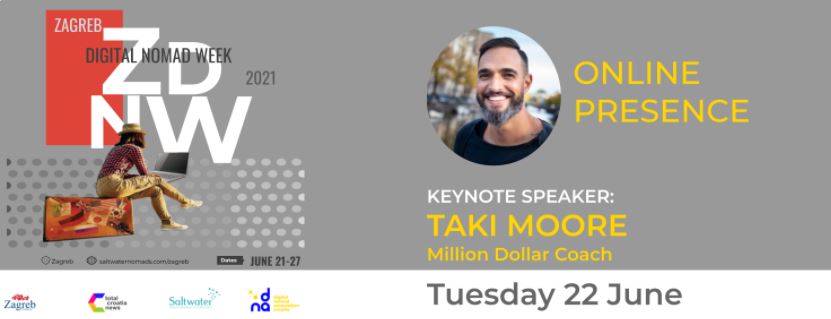New Line for Summer: Fast Boat Connecting Split and Sutivan Now Operating!
June 18, 2021 - A new fast line connects Split and Sutivan on Brač this summer, allowing tourists and locals even more options between the island and the mainland.
Namely, since June 15, the new daily line has been in operation (excluding Sundays) from Split to Sutivan on Brač Island.
SPLIT - SUTIVAN - SPLIT
Line operated by Krilo Shipping Company
Boat: KSC "Naranča"
Crossing time: 30 Minutes
Ticket price: 30 Kuna
Schedules:
Preseason and postseason: June 15 - July 1 & August 30 - September 15
SPLIT -> SUTIVAN
Monday - Friday from Split at 09:30 & 16:15
Saturdays from Split at 09:30
SUTIVAN -> SPLIT
Monday - Friday from Sutivan at 10:15 & 17:00
Saturdays from Sutivan at 10:15
You can find the table with the details below:
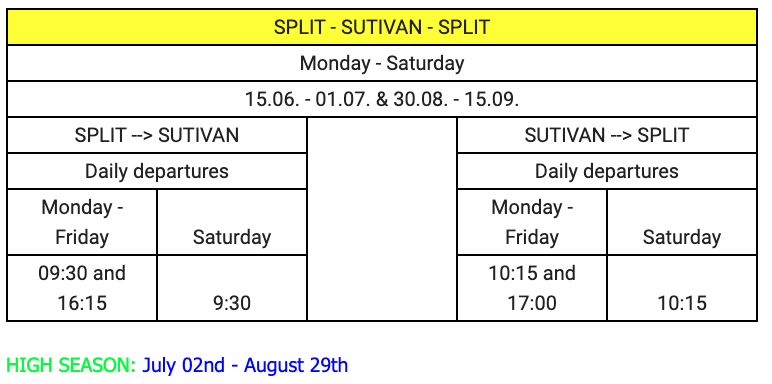
In the high season, the schedule changes, and the boat will proceed to Milna after Sutivan on the evening ride. You can find the table of the departures and arrivals in Sutivan and Milna below:
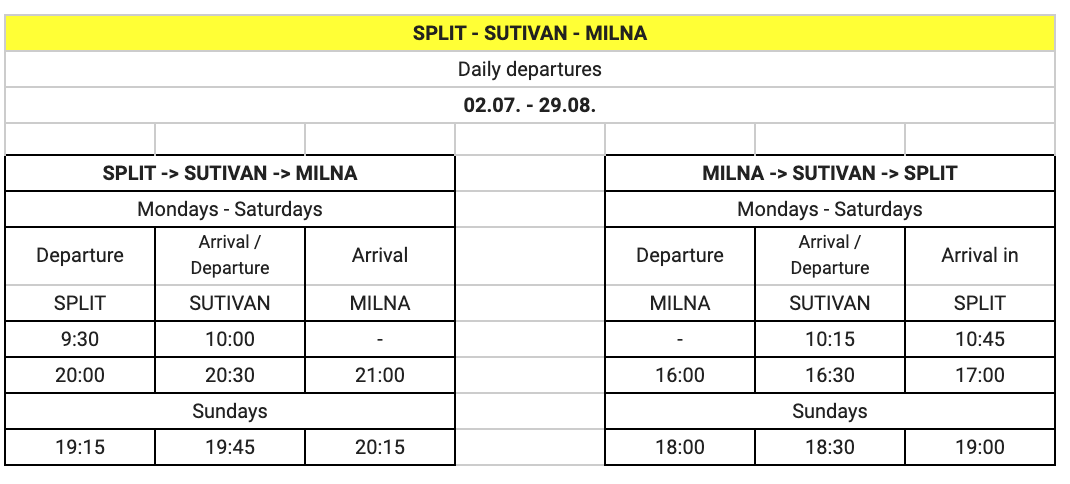
SPLIT - BOL - SPLIT
Starting from July 1, the company will start connecting Split and Bol on a daily basis, twice a day.
Line operated by Krilo Shipping Company
Boat: KSC "Jaffa"
Crossing time: 60 Minutes
Ticket price: 100 Kuna for adults; kids from 4 - 12 years of age: 50 Kuna; infants 0-3 years of age: free of charge.
SPLIT -> BOL
Monday - Sunday from Split at 09:30 & 17:00
BOL -> SPLIT
Monday - Sunday from Bol at 11:00 & 18:30
You can find the table with the schedule below:
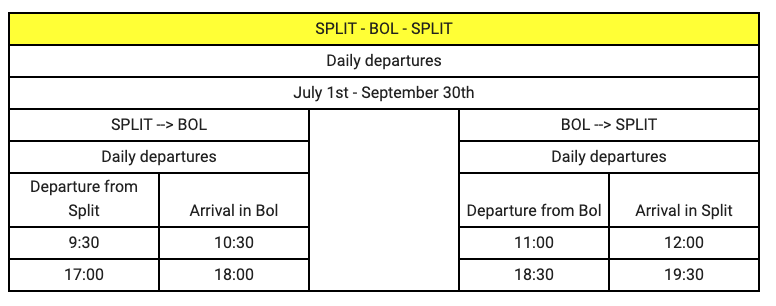
The line is operated by tourist agency TransferCroatia.com (Accommodo vobis doo), located at Obala Lazareta 3 in Split (between coffee bar Jimmy and Terminal F, facing the port). The agency has sold tickets for Krilo for the last few years. KSC is a boating company with a regular year-round line connecting Split and Rogač on Šolta and Milna on Brač island.
Tickets can be bought at Obala lazareta 3. Currently, cash payment is only accepted, but card payment will be introduced soon.
Follow the latest travel updates and COVID-19 news from Croatia HERE.
For more on travel in Croatia, follow TCN's dedicated page.
Mozemo! And SDP Join Forces: 20 Main Zagreb Projects Presented
June the 18th, 2021 - Mozemo! and SDP have joined up at the Croatian capital city's helm and have presented 28 of the main Zagreb projects they intend to implement as a team.
As Poslovni Dnevnik writes, SDP and Mozemo! have signed a coalition agreement on cooperation in the City of Zagreb. The draft agreement contains 28 points on their programme cooperation, which will ensure a majority in the Zagreb City Assembly.
A list of 28 Zagreb projects that will be crucial during their first term has also been published, and we're bringing you a list of them below in full:
1. The reformation of the city administration, city institutions and city companies with the aim of the responsible, transparent and efficient management of the city administration, companies and property.
2. The establishment of a city treasury system that will be visible to all residents through an online platform to enable financial transparency
3. The acceleration of the post-earthquake reconstruction of public buildings and private homes damaged back in March 2020
4. The setting up of an online anti-corruption platform for reporting all irregularities and illegalities in the work of the city administration and city companies, especially in public procurement or tenders
5. The digitalisation of all administrative processes and the speeding up of procedures for residents, the use of digital technologies for communication with people and for the better regulation of traffic, public lighting, the water supply and waste collection
6. The management of Zagreb's city owned property in an efficient, transparent and sustainable way so that property income is used to maintain existing properties and ensure a more balanced development
7. The introduction of extracurricular activities within the scope of "Education for active citizenship" in primary and secondary schools, with the aim of preparing students to take a conscious, responsible and active role in society and care for the public good, a healthy lifestyle and responsible money management
8. The building of new nursing/care homes and the establishment of day care centres in city districts, as well as the provision of better care for the elderly in their own homes
9. The adoption of the traffic development plan of the City of Zagreb, the integration of the public transport system, the expansion of the tram network and the building of proper bicycle paths
10. The realisation of two brand new underpasses under the railway, one of which will be in the western part and the other in the eastern part of the city
11. The ensuring of a sustainable number of parking spaces per neighbourhood
12. The improvement of the availability of healthcare services through a better system of health centres more evenly distributed across the city's districts and the provision of preconditions for the construction of a hospital in Novi Zagreb
13. The increasing of palliative care capacities across the city
14. The development of new planning bases for the new General Urban Plan of Zagreb and Sesvete, in accordance with the principles of balanced polycentric development in which new housing units are accompanied by appropriate social and communal infrastructure
15. The construction of new public apartments for rent to make housing in the city more affordable
16. The increasing of the share of recycled and composted waste and the ensuring of all of the proper preconditions for closing the Prudinec - Jakusevec landfill
17. The proper development of a transparent system for financing cultural activities and appointing members of the governing bodies of cultural institutions, the introduction of the monitoring of the implementation of the programme and the ensuring of cultural facilities being more accessible in neighbourhoods
18. The expansion and improvisation of the water supply and drainage network
19. The modernisation of the city's kindergartens and schools in compliance with the pedagogical standard and the supply of all of them with locally produced food
20. The combatting of gender-based violence against women and LGBTIQ+ people
21. The improvisation of the city's sports infrastructure, especially for recreational and amateur sports
22. The improvement of people's social security through more adequate measures and services
23. The increasing of green and wooded public areas
24. The improvement the accessibility of the city to people with disabilities
25. The establishment of youth centres and support for young people, especially when it comes to education and employment
26. The provision of incentives for energy renewal, energy transition and the further development of green technologies
27. The encouraging of new technology companies in sectors such as that of the IT and the green economy to develop business in Zagreb
28. The enabling of continuous cooperation between the scientific research community, private companies and the City of Zagreb in order to develop communal innovations and create new work places
For more on Zagreb projects and Croatian politics in general, make sure to check out our dedicated politics section.
New Rijeka Hilton Costabella Resort Opening Doors in Just a Few Weeks
June the 18th, 2021 - The much talked about new Rijeka Hilton Costabella Resort is set to open its doors as the summer season rapidly approaches, with high hopes for their first Croatian tourist season, despite the coronavirus-dominated uncertainties which still reign.
Kvarner Bay has increased in popularity in terms of tourism over recent years, with many preferring the often more temperate climes in comparison to a very hot and humid Dalmatian summer. The close proximity to Istria is also a bonus, particularly for wine lovers. Not to mention its close connections to be able to visit both Italy and Slovenia in normal, non-pandemic years.
As Poslovni Dnevnik/Marija Crnjak writes, Ryan Gauci of the brand new Rijeka Hilton Costabella Resort has a degree in hotel business from the Faculty of Tourism in Malta and has more than twenty years of international experience under his belt.
The Hilton Rijeka Costabella Beach Resort & Spa will open in just a few weeks and will be run by Ryan Gauci, who has been appointed the new general manager of the resort.
"I'm looking forward to this new opportunity and I'm proud to be able to lead the great team at the Rijeka Hilton Costabella Beach Resort & Spa. My ultimate goal is to make the resort the first choice for guests visiting this area. We're going to try to provide all our guests with an authentic and unforgettable stay. We will provide them with the highest quality services and ensure the hospitality for which Hilton is known around the world, and enable them to experience the unique Adriatic joie de vivre,'' said the new CEO Ryan Gauci on the eve of his appointment.
In addition to his vast experience in the field, Ryan Gauci has worked various jobs at Hilton hotels across Europe, including those in Malta and in the United Kingdom, Poland, France and Italy. Before coming to the much anticipated Rijeka Hilton Costabella Beach Resort & Spa, he was the head of the famous Hilton Prague hotel in the Czech Republic.
Ryan will lead the Rijeka Hilton Costabella Resort's team towards their first summer tourist season in the heart of the beautiful Kvarner Bay, while Jose Luiz Ruiz Arroyo has been responsible for the implementation of the project before the opening of the resort for eighteen months.
For more, follow our dedicated business section.
Croatian Car Registration Plates Can Now be Ordered in Urgent Procedure
June the 18th, 2021 - Croatian car registration plates can now be ordered in an urgent procedure, just like people can do with various other documents issued by MUP such as passports and personal ID cards.
There's nothing quite like booking a flight and then realising there isn't enough time on your passport, or that it has expired entirely. While you should never let that happen in the first place, it sometimes does. MUP has an urgent procedure in which a new Croatian passport can be issued rapidly, and the same can now be done with license plates.
As Poslovni Dnevnik writes, if you're in a bit of a hurry and the time limit in which you want to get your new Croatian car registration plate is important to you, and you are willing to pay extra for the pleasure of getting your hands on it more quickly, you can do so from now on - within 48 or 96 hours of a proper application being made and submitted.
On the 17th of June 2021, the decision which will allow for the faster application process for license plates will enter into force, which will enable Croatian vehicle owners to order and have their new Croatian car registration plates ordered in an urgent procedure.
This applies to all types of registration plates - those with a predefined numerical and alphanumeric plate, optional registration plates, registration plates for oldtimers, registration plates for vehicles of diplomatic and consular missions and additional plates.
The time of delivery of the new registration plates depends on the place where a person submitted their request for the urgent procedure to take place, since the registration plates, when made, must then of course be delivered to their destination somewhere in Croatia, depending on the place of ordering.
If a person submits their request at the vehicle technical inspection station in the City of Zagreb, the delivery time is a mere 48 hours, or 96 hours from the submission of a proper request at the vehicle technical inspection station outside of the City of Zagreb.
For more, follow our dedicated lifestyle section.
Entrepreneur Mate Rimac: My Only Mistake Was Paying Attention to Others
June the 18th, 2021 - Croatian entrepreneur Mate Rimac went from being an unknown individual with a dream to the most talked about Croatian entrepreneur of the modern day in the world. Having proven that you can succeed and even do so beyond your wildest dreams here in Croatia, he claims that his only mistake was paying too much attention to what others were doing.
As Poslovni Dnevnik/Darko Bicak writes, Rimac Automobili has raised a massive 250 million euros in capital so far, and although they are now considering new options, no decisions have been made yet, said Mate Rimac when discussing a recent announcement from the German media that Rimac Automobili is going public and that their estimated value is raised capital of about five billion euros.
Croatian entrepreneur Mate Rimac was a guest at the recently held regional Adria conference Auto2030 organised by the Swiss School of Business and Management Geneva (SSBM), which was held in a hybrid form from Zagreb with online presence from the capital cities of neighbouring countries - Ljubljana, Sarajevo and Belgrade.
Mate Rimac said that after 10 years of his company's existence, he came very close to the goal he set a long time ago - to have a plant from which one car will be able to be made daily, and at the same time that trucks and wagons of batteries, components and parts will go out to customers from there every day.
"One thing I blame myself for now is that I paid too much attention to what others were doing and talking about and then adjusted myself and my plans to that. The Concept_One was a dead end and the Nevera project is just what makes sense now and what we should have started working on right away,'' said Rimac.
Talented entrepreneur Mate Rimac sees the future of motoring through autonomous vehicles, with ownership being different because customers will "buy" kilometres, and not the vehicles themselves, which will be continually owned by their operators. He expects that existing car manufacturers will continue to be serious players, but no longer the biggest and most important ones.
"Today we have a situation where most people live and work in bigger cities, in the future, people's places of residence will be completely irrelevant, which will then affect many other things - 60 percent of the police today are related to work involving traffic control, airports generate a significant share of income from parking, there is a large network of car distributors who sell and maintain cars today, and who knows what that will all be like in the future and who some new players will end up being,'' said Rimac.
For more, follow our business section.
New Croatia Fan Song from Slavonia for EURO 2020: Introducing 'Sweet Little Homeland' (VIDEO)
June 18, 2021 - A new Croatia fan song from Slavonia is here for EURO2020 - introducing "Sweet Little Homeland" (Slatka Mala Domovino)!
A new Croatia fan video has arrived from Slavonia, just in time for Croatia's second-round match of Group D against the Czech Republic at EURO 2020! The two nations meet in Glasgow tonight at 18:00 CET.
"The atmosphere from the recording of the fan song "Slatka mala Domovino" We are still doing the mastering, I believe that the song will be out a few hours before the game and that the players and fans will be able to listen to it."
Creator Hrvoje Podobnik Gero reveals how the song came to life.
"I sang the chorus of the song 4 months ago. It was in the midst of the struggle of the civic initiative to save Požega Square from the intention to turn it into a concrete sidewalk. I guess that's when the patriotic charge awoke in me. In my sleep, I came out of the playing field and the fans sang "Sweet little homeland, my country Croatia, you gave me your heart, I will give you everything". I woke up and sang a chorus on my cell phone. When I woke up in the morning I couldn’t remember the chorus but luckily I recorded it.
I didn't have inspiration for the rest of the lyrics since I only got it a week before the first game. I immediately threw myself into filming, found a producer and people who wanted to participate. It was very tricky to perform this, I really did my best and I hope the fans will accept the song well.
The most important thing for me is that the players hear it before the match with the Czech Republic and that it gives them an incentive to win," said Gero.
Sweet little homeland, my country Croatia.
You gave me your heart, now I will give it to you.
Do you think this song will give Croatia the motivation they need to win tonight? We do!
To follow the latest sports news in Croatia, follow TCN's dedicated page.
To learn more about sport in Croatia, CLICK HERE.
1 HRK for a House in Legrad If You Can Meet the Criteria!
June 21, 2021 - Last year, the municipality of Legrad in Northern Croatia started to market abandoned houses and construction sites in their town at 1HRK to attract new residents and has sold 17 properties since then. This year, the Legrad Municipality came up with a better marketing strategy to resolve the town's depopulation problem - an additional 25,000HRK to 35,000HRK allowance for refurbishments, but at what cost?
Legrad is a rural municipality located just north of Koprivnica, Croatia. With its close proximity to the border of Hungary and the lack of transportation accessibility, the town has suffered continuous rural depopulation over the years as its inhabitants migrate to nearby urban cities. Currently, Legrad has 2,250 inhabitants - half the number it had 70 years ago.
The repopulation attempt of Legrad Municipality started last year when they first marketed 19 properties in their town for 1HRK under the following criteria: the buyer should be under the age of 40, financially solvent, a university degree holder and a resident of the municipality or willing to register residence in Legrad within 3 years. 17 properties have been sold since the first attempt. These criteria still left the municipality vulnerable - there was no guarantee that the newcomers will permanently reside in the town.
So for this year, the municipality of Legrad upped their game by adding a better offer but with a bigger condition as well. According to the town's mayor, they will provide the new buyers an additional allowance of 25,000HRK for home refurbishments and 20% assistance or up to 35,000HRK for those who wish to buy a private estate in their town - in exchange for their commitment to live in the town permanently for at least 15 years, Reuters reported.
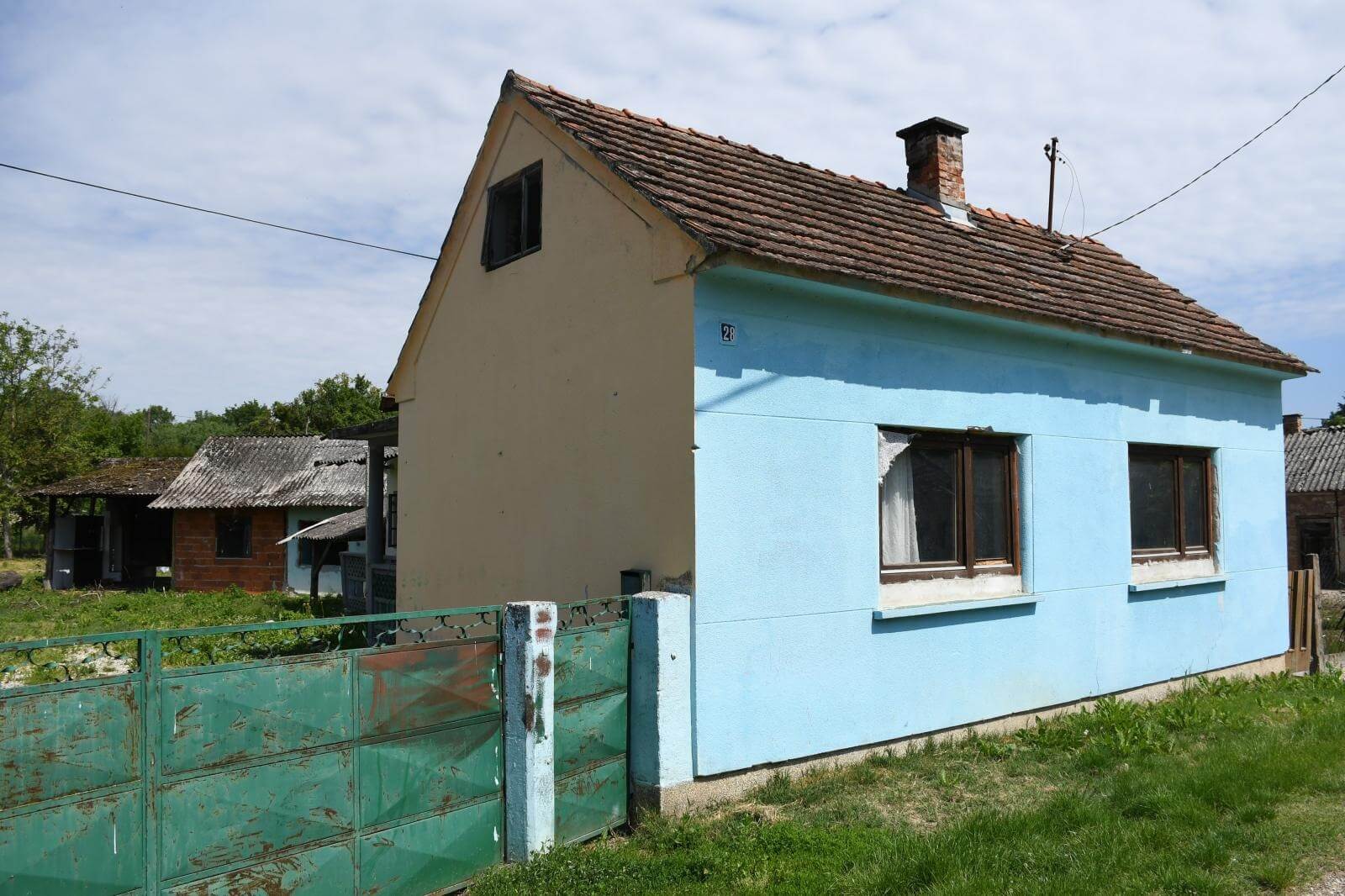
Photo credit: Damir Spehar / PIXSELL
The town's mayor, Ivan Sabolic, said that the offer has piqued a lot of interest from distant places abroad with inquiries coming from Ukraine, Russia, Turkey, and South American countries like Argentina and Colombia. But since Croatia has a complex immigration system, the municipality prefers to keep it local for now.
Last year, a young family of 4 from northern Croatia took up the offer and bought a one-kuna house and has since been living, working and raising two kids in Legrad. According to Danijel Harmnicar, the father of the family, the 15-year residency is not a problem because it is much nicer to own a property than to rent one. They are satisfied and have no plans to move in the near future.
What to expect in the town of Legrad?
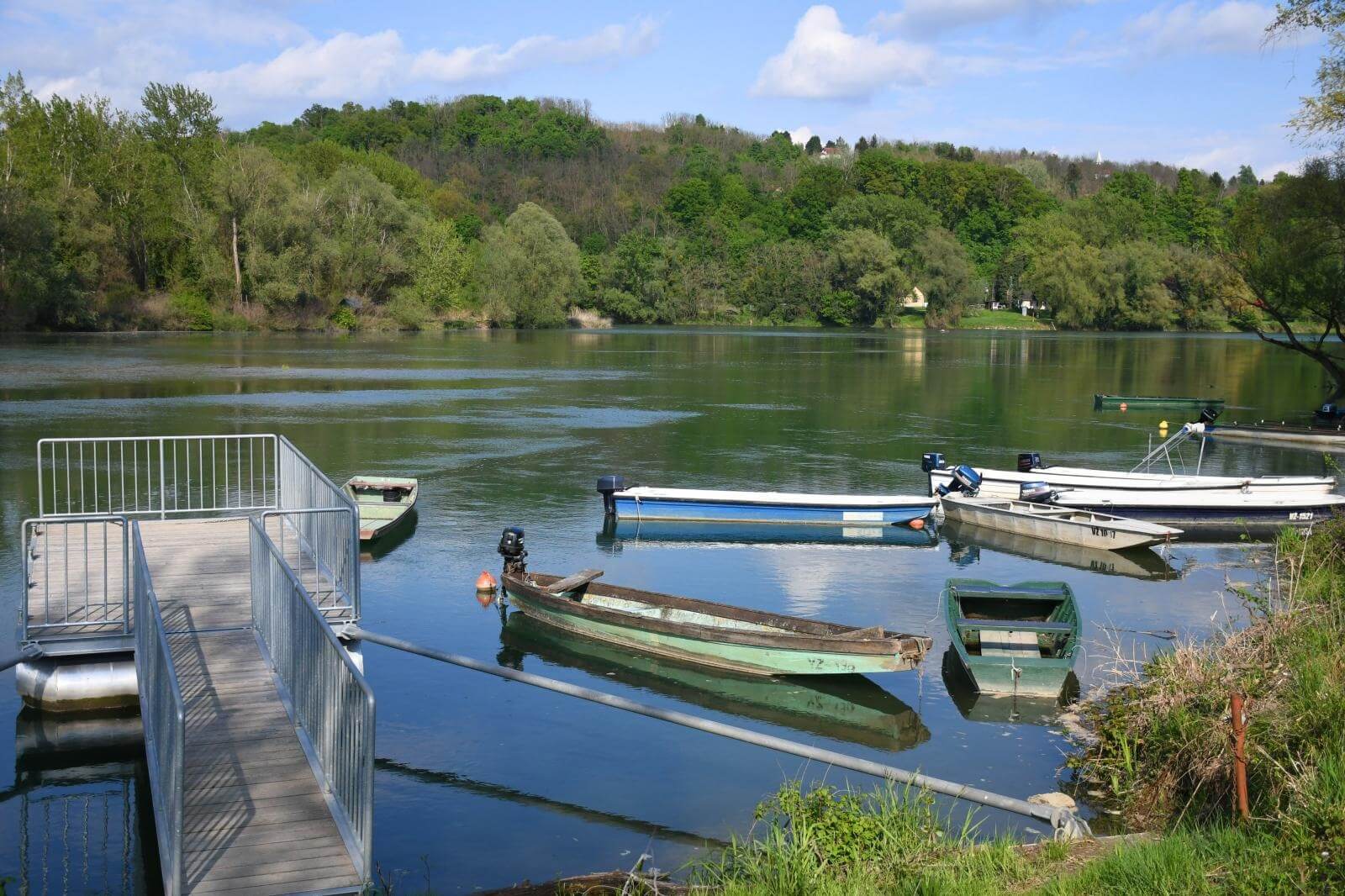
Photo credit: Damir Spehar / Pixsell
For people who are interested in moving to Legrad, Croatia, the employment opportunities offered in the town are various jobs under food production, wood processing and metal processing.
The offer is also perfect for those who dream a peaceful countryside life. The beautiful rivers of Mura and Drava meet in this town, therefore, making it an ideal habitat for rare plant and animal species. Veliki Pažut, found at the mouth of the two rivers is a ornithological reserve and is often visited by nature lovers. The rich and long history of the town is also untouched such as the Church of the Holy Trinity and a town square, both preserved from the Baroque era. Also found in this town is Novi Zrin, a fortification against Turks that was built by the historic noble family of Zrinski.
For more on lifestyle in Croatia, follow TCN's dedicated page.
For more about Croatia, CLICK HERE.
Chef Vjeko Bašić Masterclass: Seasonal Ingredients featuring Wild Leeks and Culinary Tourism in Croatia
JUNE 19, 2021 - Vice-president of JRE Croatia and restaurateur Vjeko Bašić held a masterclass in Split, using wild leeks which grow abundantly in his hometown, Murter Island, to promote the diverse flora of Croatia and its importance in the country's gastronomic industry.
JRE Croatia is a part of the Jeunes Restaurateurs which is an international association of young outstanding restaurateurs and chefs across 15 countries all over the world. JRE chefs share remarkable culinary talent, a strong passion for gastronomy and sustainability, and the commitment to keep the authenticity of their own local produce, dishes, and tradition alive. The sophisticated and relaxing ambience of JRE restaurants and the delectable selection of gourmet food and top local and international wines never fail to provide their guests a memorable dining experience!
To promote the culture and diverse flora of Croatia, Chef Vjeko Bašić together with JRE Croatia conducted a masterclass in Split, Croatia featuring seasonal, rare, and native plants in Croatia. The masterclass was done in a fully-equipped and high-technology kitchen of Miele Experience Centar Split, with the intent to highlight "paski/pilci" or young garlic sprouts that grow abundantly and is used mainly in the islands of Pag and Kvarner. However, since Chef Vjeko Bašić hails from island Murter, he opted for an ingredient much closer to home - wild leeks. His class was attended by 4 outstanding young culinary students from Aspira and one intern journalist from Total Croatia News.
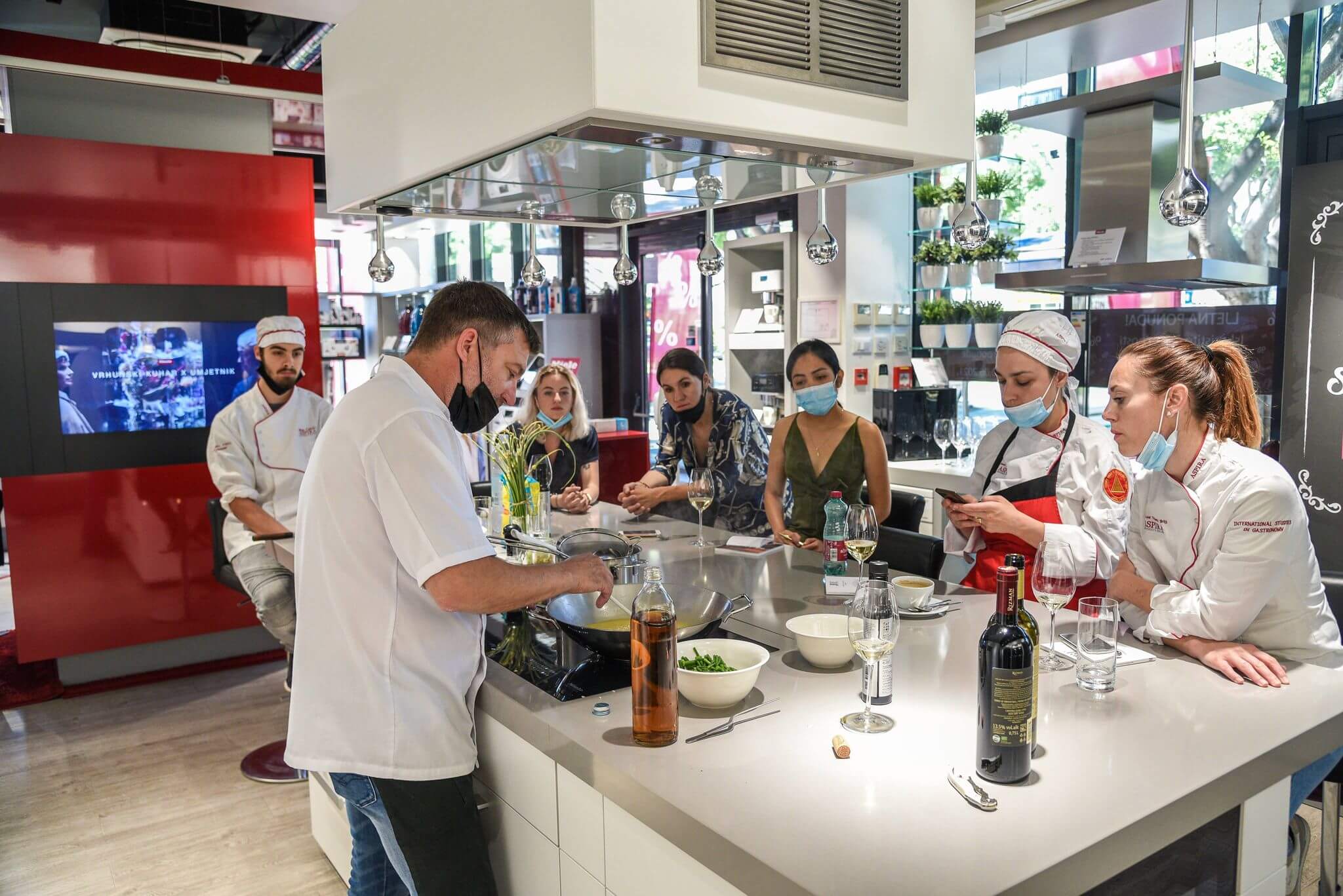
Masterclass in Miele Experience Centar Split by Chef Vjeko Bašić | Photo credit: JRE Croatia
Chef Vjeko Bašić is the owner of Konoba Boba, a fish restaurant located on the beautiful Murter Island in the Dalmatian region of Croatia. Konoba Boba is one of the 12 members and 4 honorary members of Croatian restaurateurs who have received membership in JRE Croatia. The name of the restaurant, Boba, is a family nickname that gives homage to the family's rich stories and origin. The restaurant is deeply connected to the island and therefore, highlights the usage of fresh local produce from the sea and the land of Murter itself. To respect the natural rhythm of nature and its suppliers, Konoba Boba uses seasonal ingredients and creatively incorporates locally and freshly harvested produce from their region into their menu.
The chef chose to prepare wild leek risotto for the masterclass. "On my island, my father used to pick and cook wild leeks that grow outside our house.", he fondly recalled his childhood in Murter. Prior to the class, Vjeko prepared chicken stock made with chicken, celery, leeks, onions, and carrots to be used for this special risotto. "For a good risotto, you need to have a good onion and olive oil.", he emphasized. He made a unique pesto sauce for the risotto using "paski" (young garlic sprouts), pine nuts, and olive oil and he also offered his own pickled paski for the participants to taste.
According to Vjeko, paski, wild leeks and wild asparagus grow in the same season which is from spring to early summer. It can also be prepared in a similar style as wild asparagus salad which is to blanch the vegetables, mix with some salt, pepper, and boiled eggs and add a splash of olive oil and balsamic vinegar. In cooking wild leeks and paski, only the upper part is used and the lower part is discarded for its hard texture.
As Chef Vjeko prepares his dish, Irina of JRE Croatia, offered the participants two refined selections of wine - Pošip and Plavac Mali - both from Rizman winery. "A good wine is an important part of the food experience.", Irina says as she pours each of the participants a glass of aperitif.
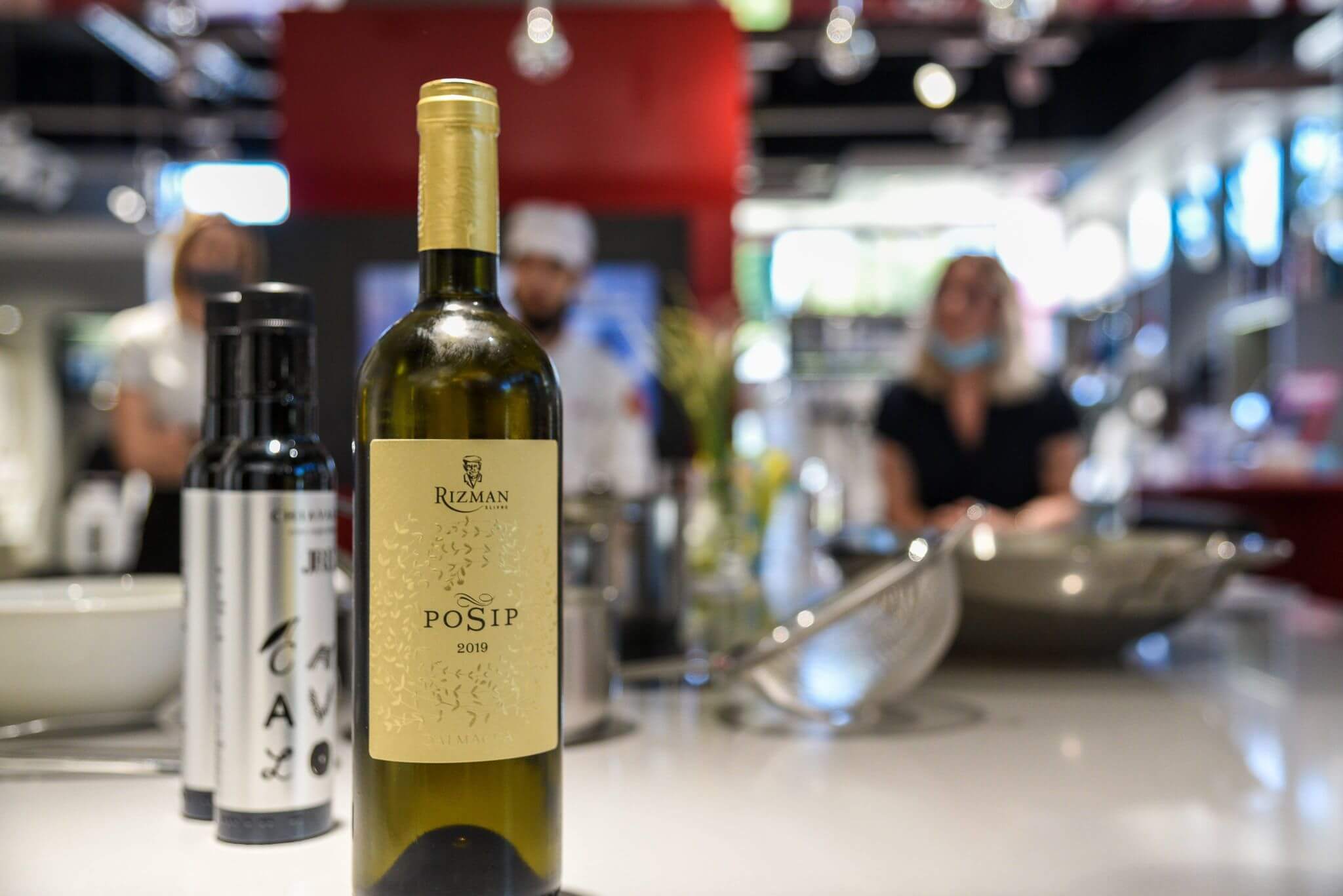
Photo credit: JRE Croatia
Rizman Winery, owned by the Stimač family, is situated in the youngest wine-growing area in Croatia which is called Komarna, in the Dubrovnik-Neretva County. The vineyards are located on a hilly area 250 meters above sea level and are close to the proximity of the sea and the famous valley of the Neretva river which provides good microclimatic conditions for wine cultivation. The wine-growing area features different soil compositions mostly of limestone and a tiny amount of organic matter, with 30% slope inclination and 2,600 hours of sunlight per year. Over 90% of vines in Rizman Winery belong to the indigenous varieties of Plavac Mali and Pošip and the rare grape variety of Tribidrag. The winery is a long-standing family tradition and the name Rizman is given to honour its founder - the grandfather and great grandfather of the Stimač family.
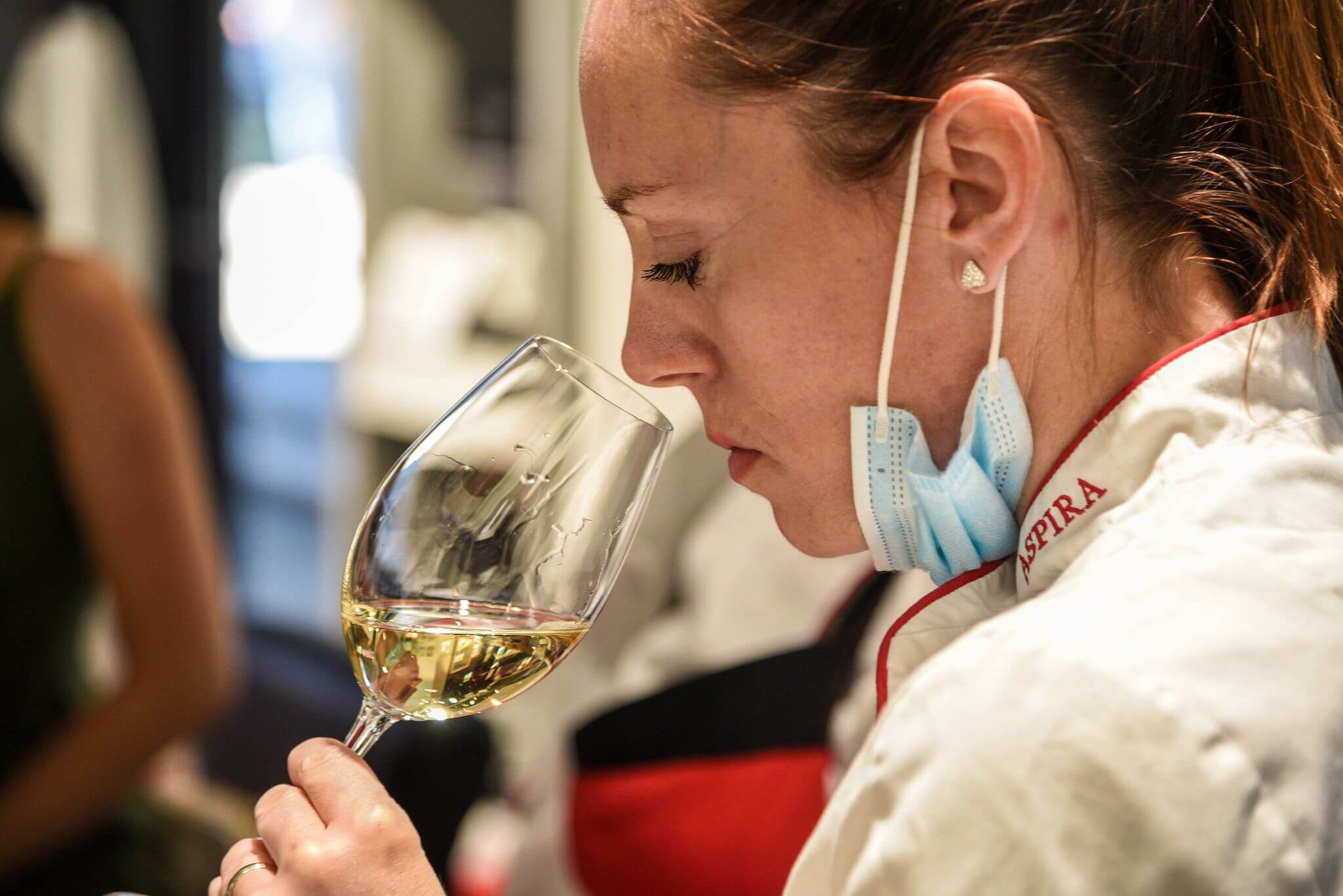
A culinary student of Aspira College savour the crisp and sweet aroma of RIzman's Pošip served in a special Malvasia Istriana Glass | Photo credit: JRE Croatia
The drinks were served in Malvasia Istriana glasses which were created by Riedel, a major manufacturer of wine accessories, dedicated specifically for Croatia's Malvasia Istriana (malvazia istarska). Malvasia is a type of wine grape with many varieties which includes Malvasia Istriana. It was a project initiated by Winemakers and Winegrowers of Istria - Vinistra Association to promote Istrian wineries and Croatian wine to the world. Nowadays, Malvasia Istriana glasses are called Superleggero Loire, because apart from pairing perfectly with Istrian Malvasia, it also pairs well with Sauvignon Blanc.
Chiavalon JRE olive oil was also used in the risotto. "Olive oil is very important to Mediterranean gastronomy", said Irina. Because of its importance, JRE wanted to have good olive oil to use in their restaurants so they partnered with Chiavalon to produce a perfectly balanced olive oil for culinary use because a strong olive oil can overpower a dish and a neutral-tasting olive oil will not give authentic Meditteranean touch to the dish. Therefore, after harvest every year, JRE Croatia and its restaurateurs get together to conduct a blind taste-test sampling to choose the oil to be used by JRE. It is a Chiavalon and JRE co-branded product of olive oil which is only found in JRE restaurants. Irina shared a tip to everyone: "For olive oil lovers, Rizman olive oil is also of top quality."
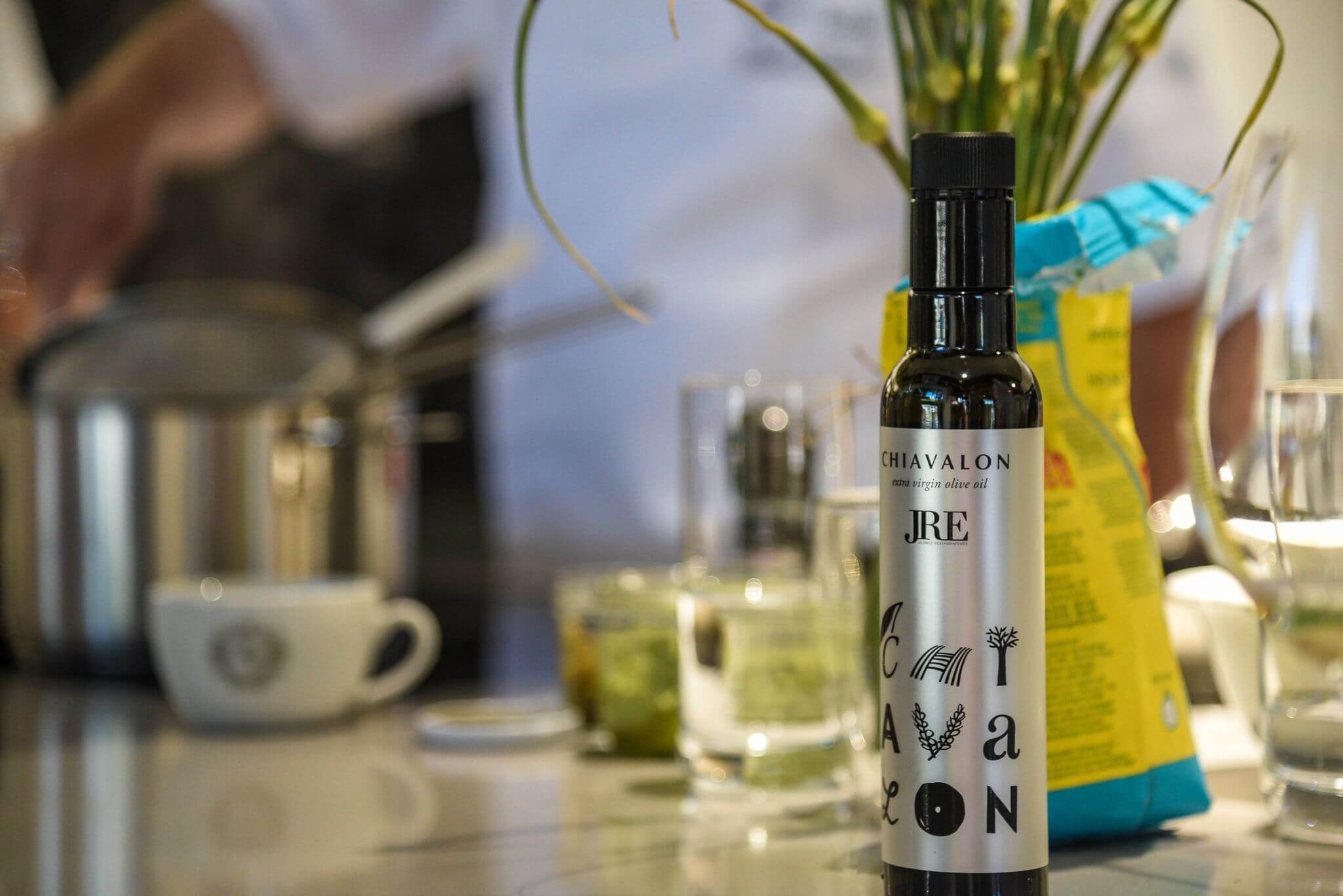
Chiavalon JRE olive oil | Photo credit: JRE Croatia
As always, every chef has a different method of cooking to bring out the best from their ingredients. "So when I cook risotto, I saute the onion in a pan, toast the rice in another skillet, and then I mix the onion with the rice after that", says Vjeko. "Why do you that?", asked one of the participants. "Because if I put the rice in the same skillet, the onion will burn.", the chef answered and then humourously added, "But you need to use a lot of pans - and now is the worst time because I don't have a sous chef with me." In this dish, carnaroli rice was used because it is ideal for risotto. He also added the pesto sauce he made from paski or young garlic sprouts in the dish. "It is also important at the end risotto to add a bit of fat - it can be butter or it can be olive oil. This time, I combined both butter and olive oil", he noted. To add acidity to the risotto, Chef Vjeko prefers to use a little bit of vinegar than the usual lemon.
After the risotto was ready, Chef Vjeko plated it beautifully and topped it off with crispy pancetta, some ricotta cheese, and homemade pickled paski. The crunchiness of the wild leek and the pancetta added a beautiful texture to the dish and the light tangy flavour from the pickled paski gave the dish a perfect balance of acidity.
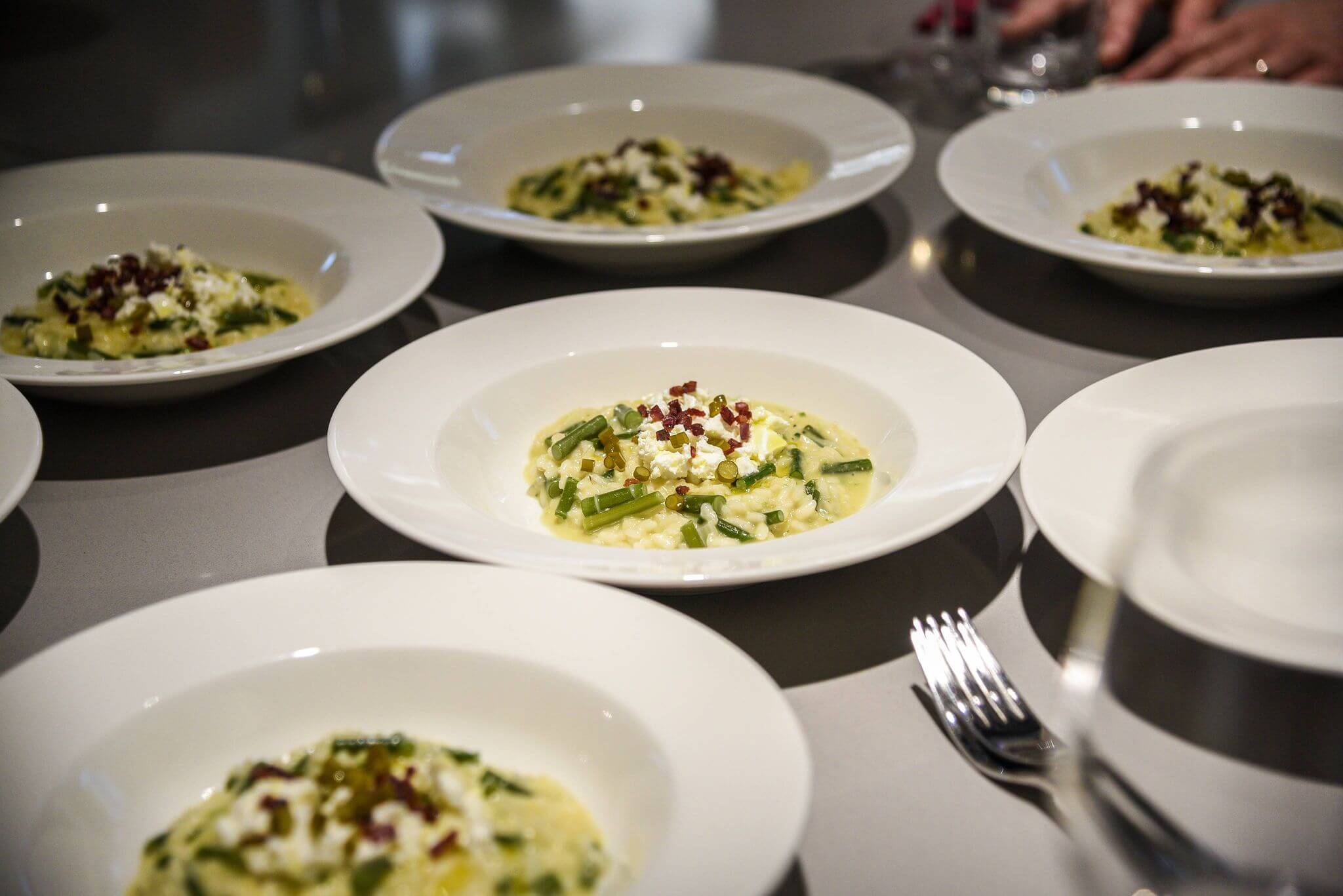
Chef Vjeko's wild leek risotto | Photo credit: JRE Croatia
Hardships in gastronomic tourism in Croatia
As the participants enjoy the food, they shared about the current problems people in gastronomy face especially those living in the Dalmatian region. "There is a big problem in Croatia with the supply chain. There are small producers with good products but due to various economic problems, have difficulty supplying sufficiently, regularly, and efficiently because they can only sell as much as they can produce. This makes the life of the chefs, restaurateurs, and people in this industry difficult in Croatia," according to Irina. Apart from the problem in the availability and regularity of supply of good quality ingredients, there is also a problem with manpower in this industry. "Although Croatia has excellent chefs and cooks, we are still new in the gastronomic scene and culinary schooling system compared to other European countries who have been a long-time destination for gourmands over the years. Because of this, JRE Croatia sincerely puts all their hopes to the young chefs of this country to help this industry succeed," she added. The seasonal character of gastronomy in the Dalmatian region and the geographical location of Croatia is also one of the reasons why the prices of food are slightly higher than others. Since Dalmatia is harder to reach especially its islands, to get a regular supply of ingredients itself is costly. "This is the aim of JRE - to have our professional chefs and restaurateurs conduct events such as this to get publicity and make the consumers understand why chefs cannot prepare risotto in 5 minutes, and why the prices of the dishes are the way they are. They have to know how hard and costly it is to get a quality and regular supply of ingredients in Croatia", Irina said.
One of the participants said that there is one restaurant in Zagreb that serves different menus every day using ingredients that are currently available. Chef Vjeko retorted, "You can do that in Zagreb because they have a full busy season throughout the year so the supplies are always coming unlike in Dalmatia, where the season lasts for only 3 to 4 months." He then added, "You will see that when you start working in restaurants here, you, too, will experience the difficulty in getting food supply which usually starts to happen from the end of May onwards". They also agreed that climate change greatly affects the production time, amount, and quality of produce. "In JRE, we also embrace sustainability. It requires knowledge to understand and respect nature and to know that we cannot have everything at great amounts whenever we wish. It is important to appreciate what we have when we have it", Irina voiced out.
The Island of Murter, Konoba Boba, and Chef Vjeko Bašić
Also called the gate to the Kornati, Murter is an island national park and one of the pearls of the Adriatic Sea. It is a popular destination for people who love sailing and explore remote islands. Paklenica National Park is also nearby where one can enjoy sightseeing, hiking, and walking. Konoba Boba makes use of the richness of the Adriatic sea and serves an interesting selection of fresh seafood including roe, sea urchins, oysters, mortar, and salicornia. While maintaining their culture, Konoba Boba never fails to innovate and continuously elevates their dishes with new exciting elements! In addition to that, the restaurant offers 50 cozy interior dining seats and another 80 outdoor ones with a garden view filled with aromas of Mediterranean plants and trees including marjoram, basil, rosemary, immortelle, mint, fig, lemon, mulberry, olive and etc. which they incorporate in their dishes as well. Konoba Boba also has a wide array of wine selection carefully handpicked by the restaurant's sommelier, Mateo Juričev Talijaš
Apart from the restaurant Vjeko is successfully running, he also has been pursuing his passion for olive oil production. "We have our olive garden with 2,000-year-old olive trees. In autumn and wintertime, we take care of the trees, harvest the olive, and produce our olive oil. This year, our olive oil received a silver medal and our family was very happy about it.", he proudly said to the participants. In his spare time, he also loves to fish. "When I was a kid, I used to fish a lot with my father. But now that I started this business, I do not have much time for it. I would love to do it once more once I decide to retire from this industry.", he added.
According to his wife, Chef Vjeko, who also serves as the Vice-President of JRE Croatia, is living his dream. With an award from the Gault&Millau Croatia 2018 Chef of the Year, a successful business on an island he deeply cherishes, and endless support from his loving families, peers, and community - we can all agree that he truly is living the dream.
For more information on Jeunes Restaurateurs' affiliated restaurants and hotels, CLICK HERE.
For more on lifestyle in Croatia, follow TCN's dedicated page.
For more about Croatia, CLICK HERE.
Lovren Returns to Squad and More from Dalic ahead of Czech Republic and Croatia in Glasgow
June 17, 2021 - The Czech Republic and Croatia meet in Glasgow on Friday for their second Group D match.
The day before the big clash with the Czech Republic, Zlatko Dalic and Dejan Lovren appeared in front of journalists, meaning that the head of defense returned to the Croatia squad, reports Jutarnji List.
There has been a lot of speculation in recent days about the lineup for the Czech Republic, which Croatia must beat to advance to the second round. Lovren has been training at full speed again in recent days after an injury, and it is now clear that he will still start in the 2nd round and help Croatia in the hunt for their first points at the EURO.
Croatia lost in the first round to England (1:0), and the Czech Republic beat Scotland (2:0).
"Every defeat is hard for everyone, including us, even if it was at Wembley to England. We know that everything is still in our hands, we have a good atmosphere, and we desperately need the right result. I am optimistic about the matches against England and Belgium in which we were equal with the best teams in the world. We miss the attacking game; if we don’t fix it, we won’t do well. Therefore, we will put a more offensive team, play over the flanks and look for one-on-one actions. Everyone is ready except Barišić," said Zlatko Dalić to begin.
"There will be some changes in the lineup because we will arrange the game a little more offensively. We miss finishing and breakthroughs. I was the first to say that we were too weak in London, that we didn't have enough players to finish, that we lacked one-on-one breakthroughs. Without chances and goals, of course, there are no results."
Does the team have a winning spirit?
"We are not in a comfortable situation like the Czechs; we need a victory that would give us even more self-confidence. The guys are aware of that. I do not see any problems in that regard; we are motivated, we are ready."
He then pointed out something else:
"We are in a tough situation because we play away, without our fans who are our strength, without them, we are in a huge deficit, and we really miss that. Look at Denmark's support. Half of the teams play at home, we travel. It is not fair to us that there will be so few spectators in the stands."
A Scottish journalist asked Dalic about Borna Barišić and whether his absence was a great loss.
"It is a great pity for us that he is injured. He played great for the Rangers; when he arrived for the preparations, he got injured again, and he was not in the right shape and completely ready. We left him at home to prepare better; we need him for Scotland. So we have to give another player a chance."
On adapting from warm Rovinj to cold Glasgow, he said:
"We had nice weather in Rovinj; it was too hot in London and tough to run, it will be easier to play here in Glasgow. We will do our best."
Stopper Dejan Lovren has recovered from an injury that kept him out of games for a long time.
"I feel perfect, I am positive, I am available to the coach. I’m ready to play, and the coach decides. We expect a pretty tough game, but we have to play it the right way," said Lovren.
What kind of match can we expect?
"I expect a hard game. They feel more comfortable. They have a team that has been playing for years. We have to play smart, to do everything that the coach asks of us. No calculation, let's go for three points."
What do you expect between England and Scotland?
"We are not a team that will look at the other, only if we have to. We depend only on ourselves, and that is most important. We will concentrate on the Czech Republic. Everything is in our hands. It will not be easy for England against Scotland."
Lovren said he has been following Euro matches.
"I don't have anything smarter to do. We can single out France and Italy, and the biggest favorite, in my opinion, is France. However, Italy is also extraordinary, at the moment among the three best teams," concluded Lovren.
To follow the latest sports news in Croatia, follow TCN's dedicated page.
To learn more about sport in Croatia, CLICK HERE.
BIZkoshnica, Zagreb Coworking Since 2015: Mirela Marovic Omerzu Interview
June 17, 2021 - Zagreb Digital Nomad Week 2021 begins on Monday. Continuing our look at the hosts of the event, meet one of the ciy's coworking pioneers, Mirela Marovic Omerzu, owner of BIZkoshnica, who will be hosting Tuesday's event on Online Presence
The digital nomad buzz in Croatia is getting louder, so time for some perspective. Mirela Marovic Omerzu opened one of the first coworking spaces in Zagreb back in 2015 and has been following the development of this sector ever since. Some fascinating insights into how things where, how they are now, and where they could go.
1. You were one of the first to open a coworking space in Zagreb back in 2015. Tell us about that decision and how locals perceived your idea.
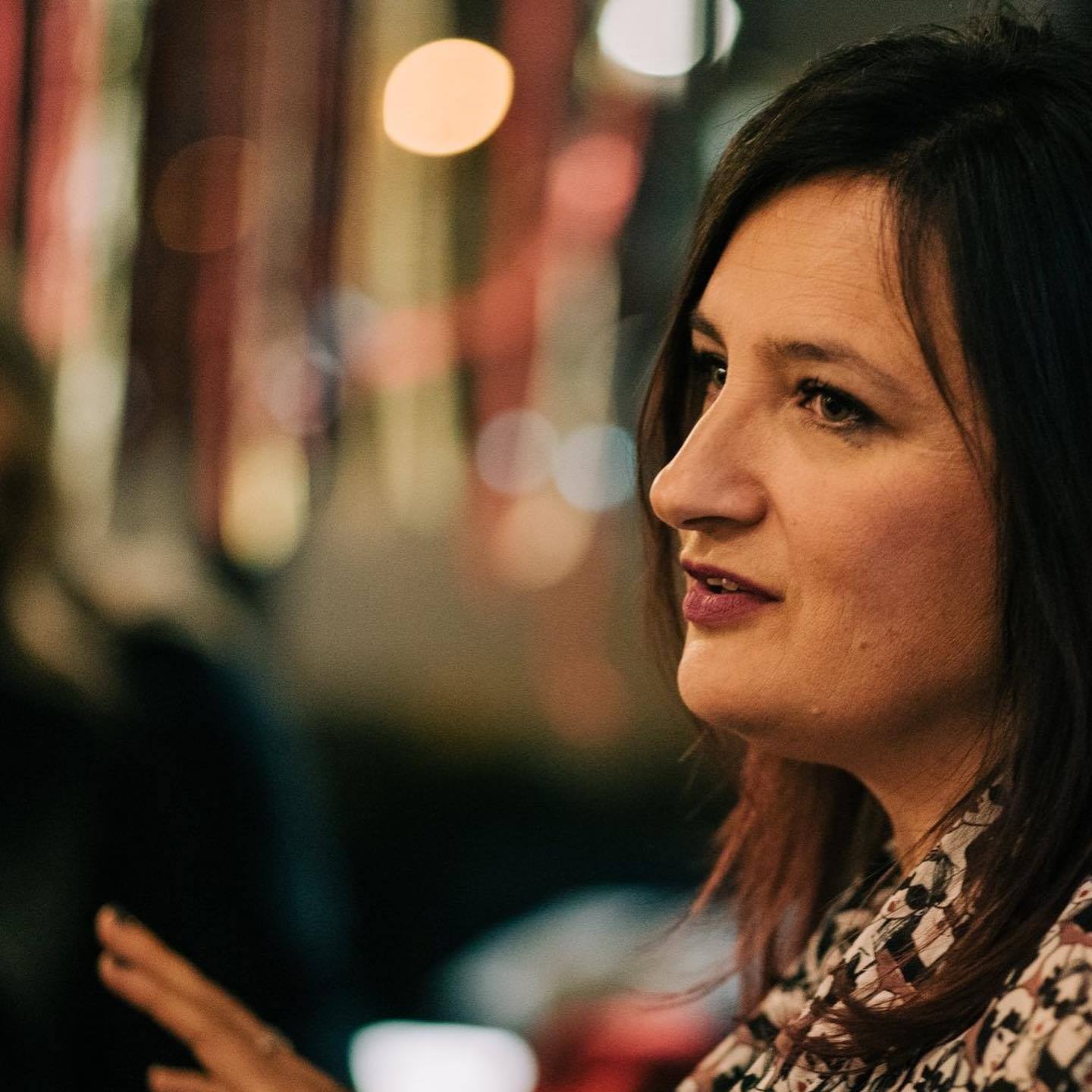
To be honest I didn’t really know much about coworking at the time. Well, it's better to say I knew almost nothing. I had a potential space at my disposal that was in a very bad condition and I wanted to make creative space out of it. One that I would share with others. I felt that other micro-entrepreneurs had similar challenges. At the time my kids were very small, I was working from home, which was neither satisfying nor productive. I felt lonely, sometimes desperate and I longed for informal conversations with adults and I needed a boost for my business. When I started researching what is needed to realize this idea, the coworking model stood out. I wanted to offer the market a local story while respecting the core values of the coworking movement such as openness, flexibility, collaboration and sustainability. Today I can say that these values fully resonate with the members of BIZkoshnica and with me and that we live them daily.
At the time, the coworking idea was very abstract to most people, apart from a few freelancers or entrepreneurs. It took some time for a certain mindset-shift for people who start their own business to accept a flexible office solution as ideal and for them to see the benefits it brings. Benefits such as informal networking, business and project opportunities, the development of business skills and personal development that is inevitable in working with people and ultimately that it is more cost-effective. The main advantage is that most of our members are independent and are free from the belief that everyone is everyone's competitor or that they are not allowed to share their ideas, which is a belief people working in larger corporations often have . Working in coworking is characterized by a relaxed and stimulating atmosphere without strict rules where collaboration culture can be implemented easily. The most important thing is that the person is open minded and that they doe what they love and what they are good at.
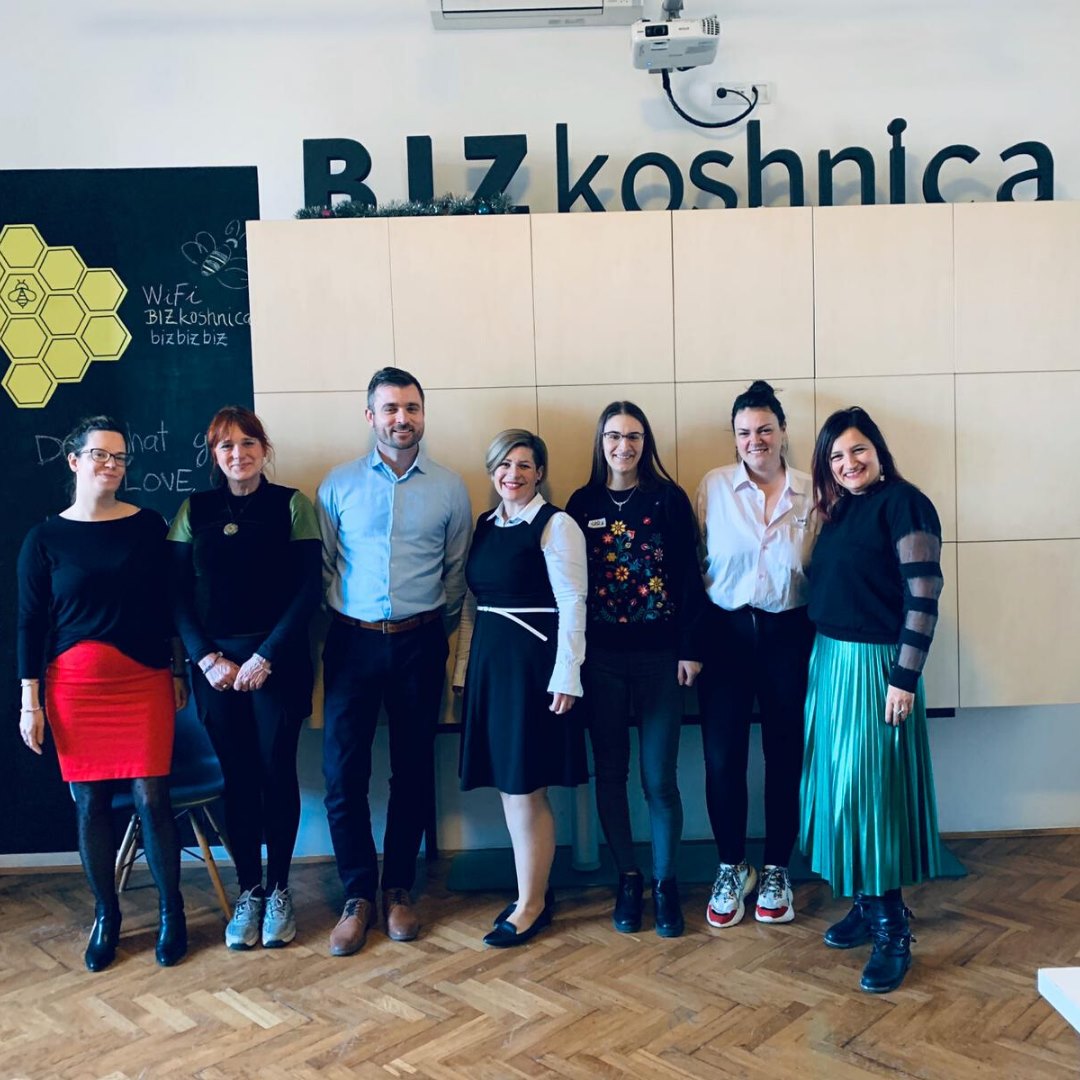
2. Things have changed a lot since then of course. How would you describe the co-working scene today in the city?
Today, the scene of coworking space in Zagreb is quite different. A lot of coworking spaces have opened up, there are a lot of spaces called coworking spaces just because it sounds good, but some are exclusively real estate businesses. A lot of specialized spaces have also opened up. IT oriented, social impact, tourism oriented.
Sometimes I feel like Statler and Waldorf from the Muppet show who watch it from the sidelines and comment. I am strongly personally attached to coworking and for me, coworking is not just the future of work but the only way to work. I don't know what the future holds, but common sense tells me that people will increasingly accept flexible ways of working and that trends inevitably go in the direction of cooperation, self-employment, independence, digitalization, and that the need for collaborative spaces will grow.
On one hand, I welcome the opening of new shared spaces, coworking spaces, because it means that the economy is recovering, that the way of working is changing in the direction of sustainability, cooperation and flexibility. On the other hand, each space should build its own story with appropriate content and offer it to its specific target group. There is still a lot of potential in the coworking market in Zagreb, which already has a well-developed offer, while in the smaller cities on the coast as well as in interior parts of Croatia the need and potential is even greater. There is still work needed to change people's mindsets and habits.
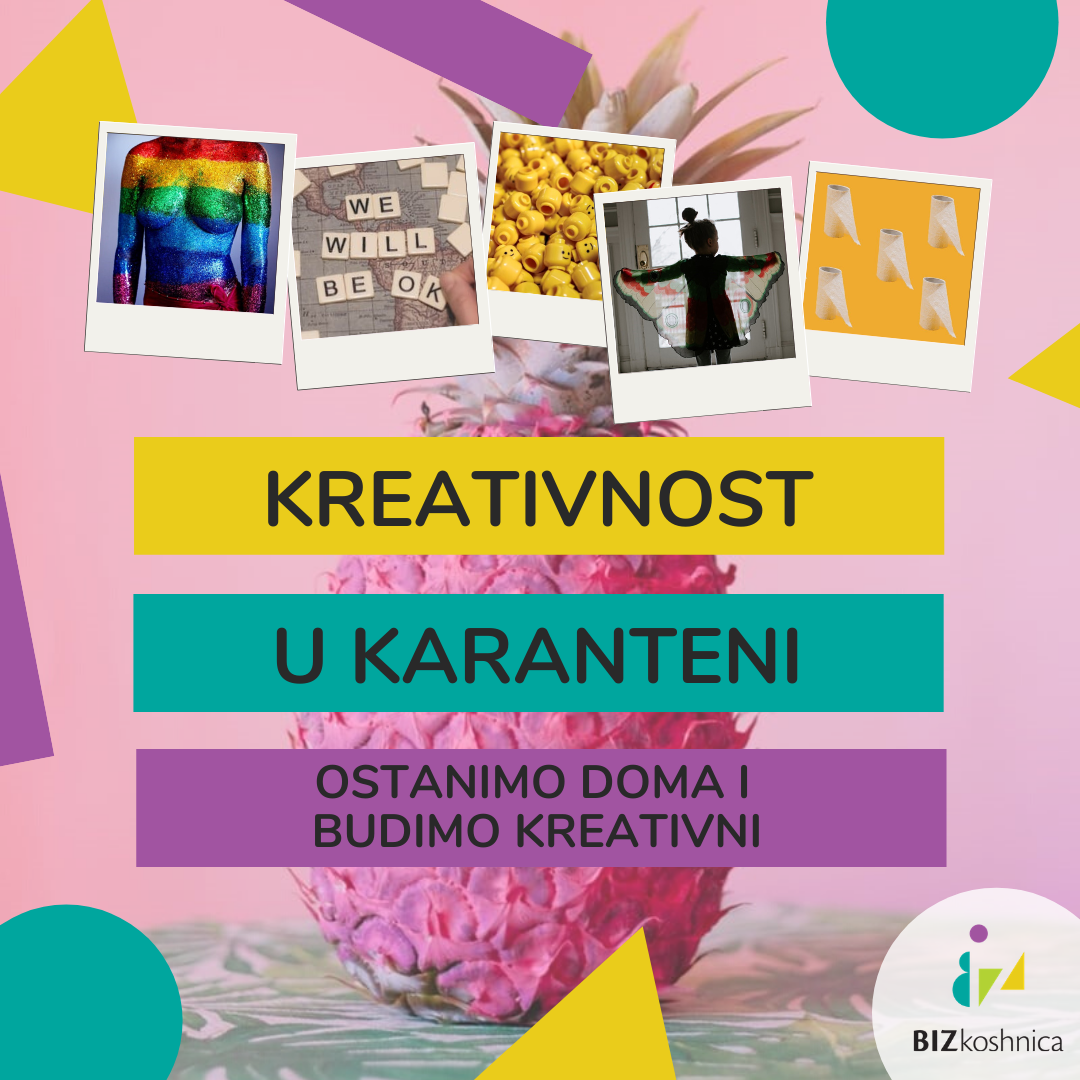
3. The pandemic changed the way we work, but Zagreb also had the devastating earthquake of March 22 to contend with as well. Tell us about the realities of running a coworking space in 2020 in Zagreb, and how you adapted?
Sometimes I think we are starting all over again from scratch, but we are fortunate it left mostly material damage. It was really hard in 2020 firstly because all the events stopped due to covid pandemicand that used to account for 70% of our revenues. When the earthquake hit it left some damage in the space too because we are situated in the very central position at Zagreb’s British square. In 15 seconds one of our main selling proposition points turned into the biggest downside. After the first shock, a big help for us was mutual online socializing with our members and with Creative Hubs network as well as regular zoom calls with colleagues from all around Europe that are running spaces. The fact that we are not alone and that we are in the same problem was a soothing fact. We managed to renovate and adapt the space, the loyal members stayed and started to return after the lockdown. We adapted to the situation so that we are offering some of the services online like VirtualBee service or online educations. We encourage our clients to organize hybrid eventswhere online and offline events are combined. The space was adapted so that users have enough space and are not in danger of spreading the virus among each other. The space is regularly disinfected.
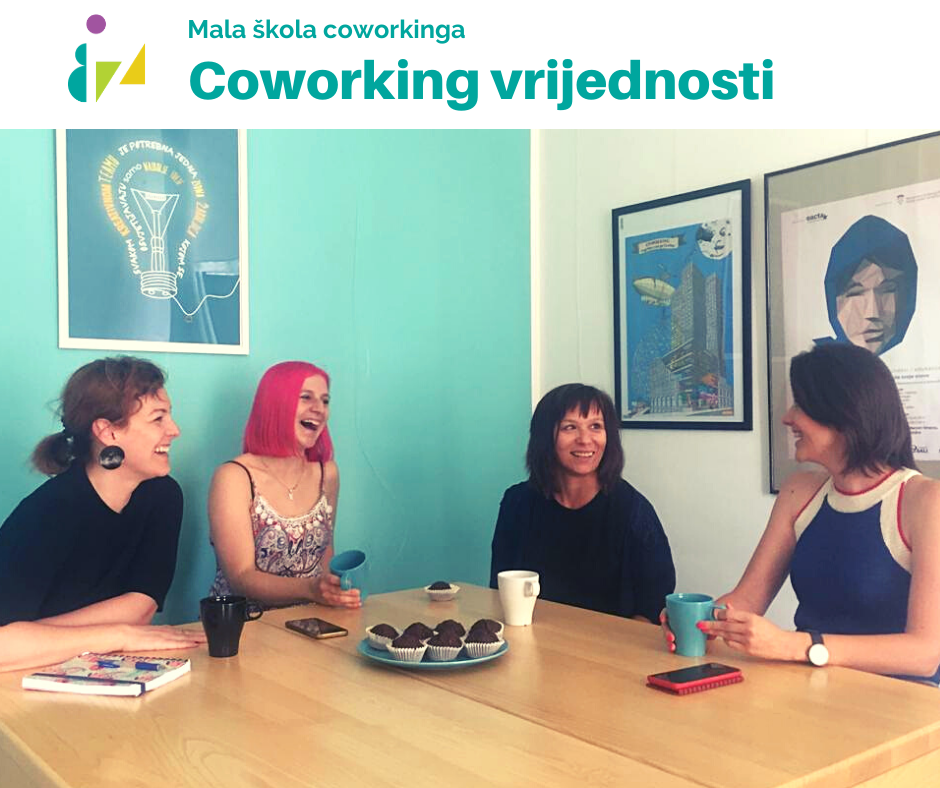
4. There is a lot of buzz about Croatia as a digital nomad destination. Do you think it is justified? What does Zagreb do well, and what should it be doing better to serve digital nomads?
This buzz is great and I am really welcoming the idea of Croatia as a digital nomad destination. Croatia has all of the prerequisites for a great life: indescribably beautiful nature, cultural heritage, cordiality, ideal climate, excellent geographical location as well as connections. Those are also some of the reasons why I decided to stay in Croatia. Zagreb particularly is an attractive city, especially in these times with regards health and safety. It’s big enough, while still remaining cosy compared to other metropolises. Proximity to the Adriatic coast, and to other attractive destinations in the interior makes it desirable as well. All the amenities needed by digital nomads are available. High speed Internet connection, coworking spaces and communities, affordable housing, good restaurant offerings and other offerings necessary for a nice quality of living. I’m not particularly familiar with the activities Zagreb as a city undertakes to attract digital nomads. There is a national campaign, but I don’t believe that it is enough.
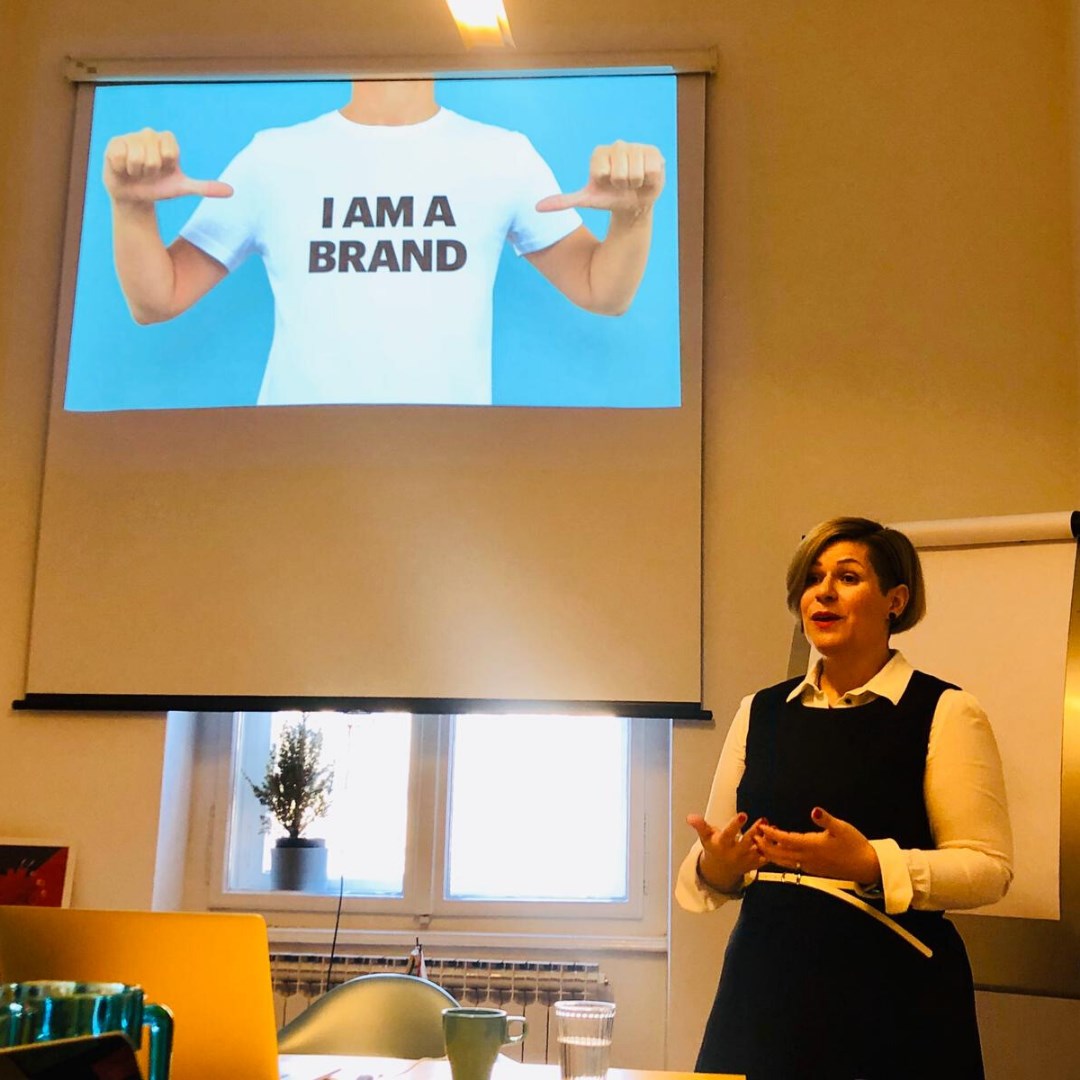
5. Three quick wins to improve Zagreb's digital nomad offer?
The promotion of the opportunities for digital nomads in Zagreb should be done more intensely. Information on how to acquire visas and permits for digital nomads, as well as travel, accommodation, coworking opportunities should be obtained easier. Tax and legal advice and requirements should be more readily available and appropriate.
6. You have obviously been dealing with digital nomads in Zagreb for several years here in Zagreb. What trends have you noticed in the last couple of years?
We have had digital nomads from all around the world in BIZkoshnica so far. United States, Australia, Philippines, Sri Lanka, Morocco, India, Canada, Israel… We remain inspired by their life and business stories. They all fit in very well and had no special requests or needs despite the different cultures that they came from. I would say that locals are more picky and demanding. What the digital nomads brought to our community is a sense of possibility and the feeling that the world is only one and that we are all one. We have kept in touch with many through social media networks, we follow their work and travels. The influence of digital nomads and their openness in the exchange of culture and experiences is invaluable. They can make a real impact in the local economy, as well as provide inspiration for young people to follow their example in life and work. I would say that in the long run, digital nomads themselves could become ambassadors of a country they are visiting if their stay was pleasant and met their expectations. They will spread the word among their friends and companions. Among the digital nomads who came to BIZkoshnica, there were many couples who travel together, but work completely independently and remotely, the age ranges were from 25 to 55. Most of them stayed in Croatia for multiple months and during their stay they were very active in getting to know the country and people and its tourist attractions, local habits and culture as well as visiting surrounding countries on weekends.
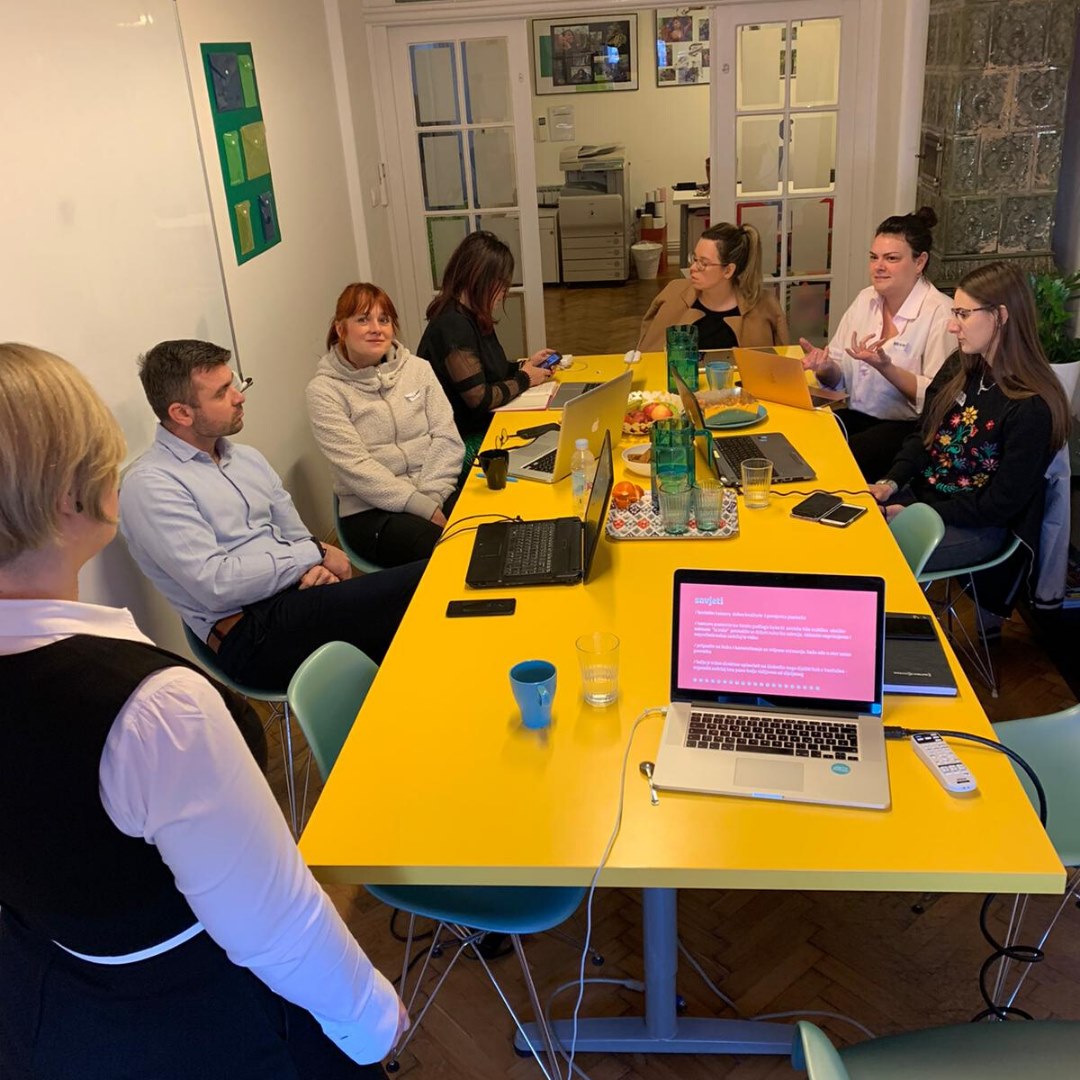
7. What is the Zagreb DN community like at the moment, and what strategies would you implement to grow it significantly?
It takes time and personal efforts to build any kind of community. At the moment the digital nomads community is in the establishing phase but the Digital Nomad Association is doing great in all its initiatives. More stakeholders need to get involved. The numbers of approved digital nomad visas are growing and digital nomads are choosing not only Zagreb but other cities in Croatia to stay. Firstly, once the digital nomads are attracted by Croatian natural beauty, its safety and high quality of life, all the other practical information about accommodation, taxes, health insurance, coworking spaces need to be communicated to the digital nomads preferably in one central spot.
Being aware that digital nomads, alongside freedom and flexibility, are mostly interested in making connections with local people, it is needed to provide different kinds of networking events to enable them to learn about local culture, to meet local entrepreneurs, to participate in meet ups and skill sharing events. All of these events are needed to keep the digital nomad community alive. The intra personal and business connections need to happen, so they can do their job at such events. Given the easing of covid measures, we expect to organize more such events also in our space.
8. Tell us about your involvement in Zagreb Digital Nomad Week, and what should the city be looking to get out of the event?
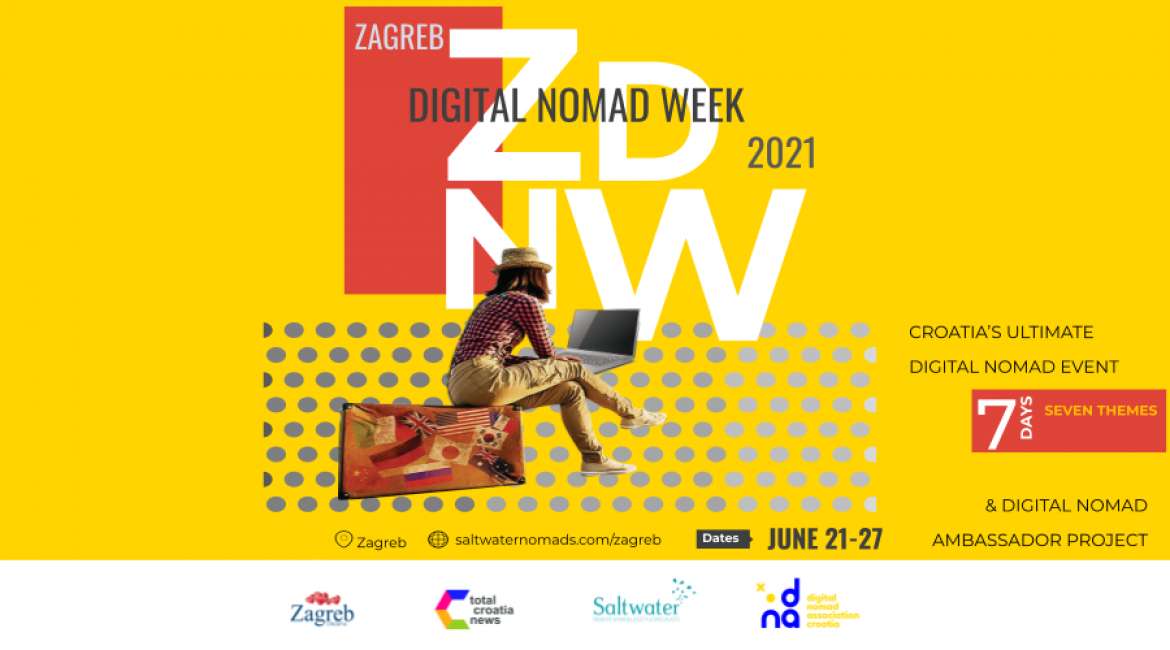
Once Tanja Polegubic from Saltwater Nomads presented the project to us, we immediately decided to get involved because we see great value in such initiatives that help connect digital nomads with the coworking, business and tourism community in Croatia. We are looking forward to hosting a DNW event at BIZkoshnica and our goal is to introduce visitors to our members, as well as to find out about the needs of digital nomads present in Croatia. Digital Nomad Week is an ideal way to promote and popularize digital nomads and the benefits we can have from their stay in Croatia, not only in terms of tourism but from the perspective of local community development.
Zagreb has yet to open up and show everything that it has in store. Zagreb offers a lot, but is hiding its gems, and there is so much authenticity to be proud of. Perhaps the Croatian paradox of identity is also reflected in this. We Croats often do not appreciate our own and think that we are not good enough and that everything that is coming from abroad is better, while at the same being very proud of our heritage only. That is that paradox that keeps us in place like a children game Frozen queen 1, 2, 3. ☺
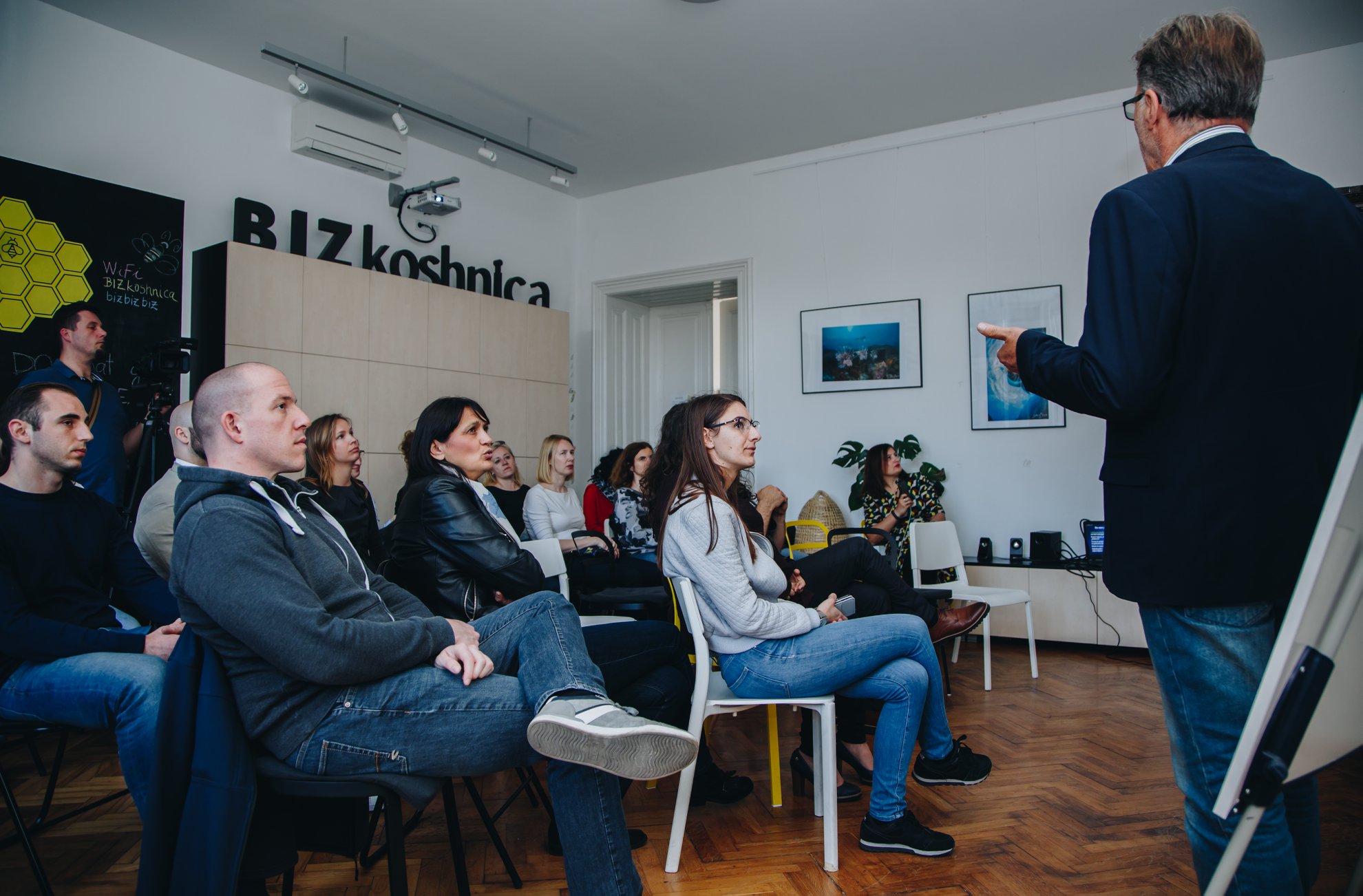
9. And finally, in a paragraph, sell Zagreb to potential DN visitors. Why should they come here?
As a young traditional girl full of life and potential, Zagreb wants to open up and offer all its possessions to the world. She knows she offers a lot, but she’s shy, she likes to hide. She thinks other cities are better. Then one morning she wakes up and realizes she wants to live her own life and be herself. She starts to stroll from the center, through the streets of the lower town full of historical sites and stories, intertwined with the modern way of life. There are a lot of people there, they speak good English, they are educated, cultured and hospitable. They enjoy their city and everything it offers from the urban lifestyle, countless cafes, delicious food, museums, theaters, concerts, events to nature in the city, the beautiful Zagreb's mountain of Medvednica, green city parks, lakes Bundek and Jarun, the Sava River. In the vicinity of Zagreb there are many excursion destinations, many sports and cultural facilities, national parks and nature parks, castles, rural households offering organic food and pristine experience.
The sea and the Adriatic islands are less than a 2-hour drive away. Every place, island, stone tells its own story, and the visitor builds his own experience upon that and always gladly returns to that paradise on earth. The land of the most beautiful sunset, the land of thousand islands, homeland of many inventors, homeland of necktie, pen and the fastest electric car in the world. Welcome digital nomads! Zagreb greets you.
BIZkoshnica will be hosting Day 2 of Zagreb Digital Nomad Week on Tuesday, 22 June, with the theme of the day - Online Presence. More information on that, as well as where to register (online and in person - please note that physical places are limited due to the measures) here. Attendance is free.
For more on Zagreb Digital Nomad Week 2021 & Zagreb Digital Nomad Ambassador Project, visit the Saltwater Nomads website.
For the latest news and features on digital nomads in Croatia, check out the dedicated TCN section.


